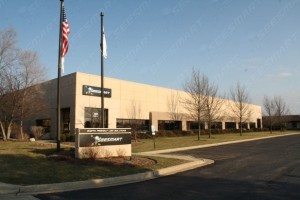Frustrated by the additional expense and difficulties with slower shipping, Seesmart Technologies (SEST) feels it is very important to have more control over the manufacturing process, as a result, it has intended to increase their production of LED lighting products in the United States.

Combined with their desire to create jobs for US citizens, the company started building factories in Simi Valley, California, and Crystal Lake, Illinois. "When we do the numbers we're actually ahead manufacturing here instead of paying for air freight and dealing with the logistical issues that we're having in China," said Raymond Sjolseth, the company's president and co-founder.
And according to an interview with CBS news, Seesmart has pursued grants and incentives from federal agencies that might assist companies like theirs, who manufacture energy-efficient technologies and believe that employing our own workers is a key component in improving our current economy. Even know they have not been able to cut through the red tape, they are still committed to bringing jobs home.
The company today makes 20 percent of its products in the United States, a number it aims to push to 75 percent by the end of next year. Successful completion of this goal could result in hundreds of new jobs for US employees.
With the continued success of large orders in numerous sectors of commercial business such as Pasadena College, SL Green Realty Corp., Memorial Sloan Kettering Cancer Center, Zyloware Eyewear and Cambridge Security Seals increasing production in the US would certainly provide an obvious advantage for local clients.
At Seesmart, shifting production from China to the United States is cutting logistics costs by about 30 percent as it no longer needs to fly merchandise across the Pacific. Products can also be made and shipped to customers more quickly, Sjolseth said.
"The LED business involves a very compulsive buy, and many clients will not tolerate long lead times," he said. "So if you're not delivering in four to six weeks, it's not going to happen. You're going to lose the deal and they're going somewhere else."





 CN
TW
EN
CN
TW
EN






